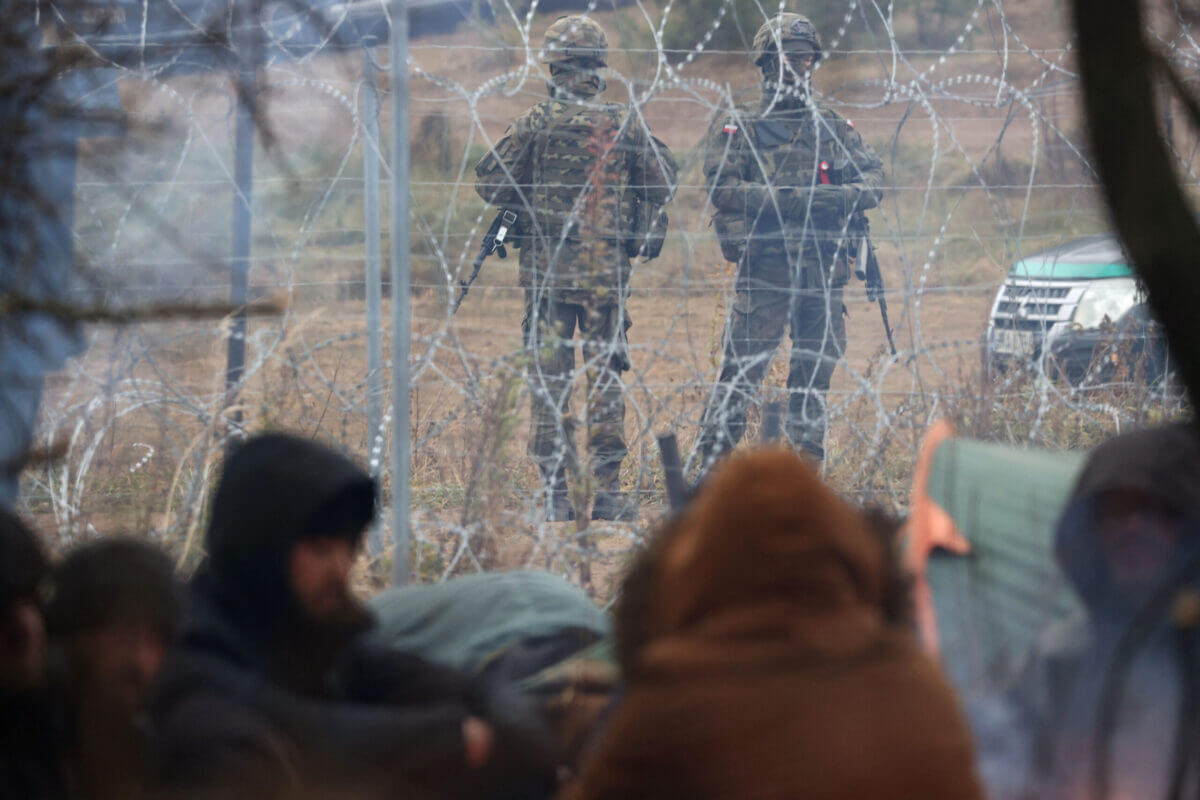The European Union (EU) and the United States (US) warned of new sanctions on the Belarusian regime for conducting a “hybrid attack” by sending thousands of migrants to the European borders. The defence ministers of the EU have also warned of a possible military conflict with Belarus over the escalating migrant crisis.
The remarks come after European Commission President Ursula von der Leyen met US President Joe Biden at the White House on Wednesday. The duo discussed various issues, including the migration crisis at the Poland-Belarus border, global warming, the Russia-Ukraine conflict, and trans-Atlantic trade.
In a tweet, von der Leyen said, “I had a productive meeting with POTUS at the White House. We touched upon a series of issues, including the situation at the border with Belarus. This is a hybrid attack. Not a migration crisis. Beginning of next week, we will very quickly expand our sanctions against Belarus.”
Concerning the migration crisis, von der Leyen said both sides discussed a range of potential sanctions on Belarusian airline Belavia for facilitating human trafficking and confirmed plans to impose further sanctions on at least 30 Belarusian individuals next week. She added, “It is important that Lukashenko understands that [the regime’s] behaviour comes with a price.”
Simultaneously, outgoing German chancellor Angela Merkel has urged Russian President Vladimir Putin to help resolve the ongoing migration conflict between Poland and Belarus. In a phone conversation with the Russian leader on Wednesday, Merkel criticised Belarus for weaponising migrants and called it “inhumane and unacceptable.” In response, the Kremlin suggested direct communication between Minsk and the EU member states to resolve their issues and agreed to continue dialogue on the migration crisis.
Russian Foreign Minister Sergey Lavrov opined that dialogue is the only way to resolve the crisis, noting, “Belarus has already repeatedly suggested doing consultations at the border, to talk, to settle these issues based on international law.” Likewise, senior Belarusian official Vladimir Makei said it is EU, and not Belarus, that is the “problem,” for lacking concrete strategy pertaining to Belarus and courage for communication.
However, Polish Prime Minister (PM) Mateusz Morawiecki on Tuesday accused Putin of using Belarus to orchestrate the migration crisis. According to reports, thousands of migrants have set up camps near the Poland-Belarus border after failing to cross the barrier. Poland deployed thousands of soldiers to its border to push the migrants back to Belarus. The Kremlin denied Morawiecki’s accusations, calling them baseless, and instead blamed Poland and the EU for causing the crisis to avoid aiding potential asylum seekers. Likewise, Belarus claims that migrants are arriving legally and have the right to seek asylum in any country.
Against this tense backdrop, EU defence ministers warned of a possible military conflict at a press conference during the Annual Baltic Conference on Defence. Estonian Defence Minister Kalle Laanet said, “The potential for escalation is extremely high.” The defence officials of Greece, Britain, and Lithuania also expressed fears over a possible escalation.
The officials also urged the bloc to provide Poland, Lithuania, and Latvia with the resources to quell the migrant influx. On Wednesday, European Council President Charles Michel said the EU could fund the construction of border barriers. Speaking at a press conference in Warsaw with the Polish PM, Michel said, “Based on an opinion of the Legal Service of the Council, it’s legally possible.” Furthermore, he said the debate about the funding of physical barriers would be revisited soon, and that it is up to the European Commission to proceed further.
The discussions come amid heightened tension between Poland and Belarus, with hundreds of migrants stuck on the border in freezing temperatures. The EU has accused Belarusian leader Alexander Lukashenko of intentionally orchestrating a migration crisis to retaliate against the sanctions imposed by the bloc over electoral fraud and human rights abuses.

